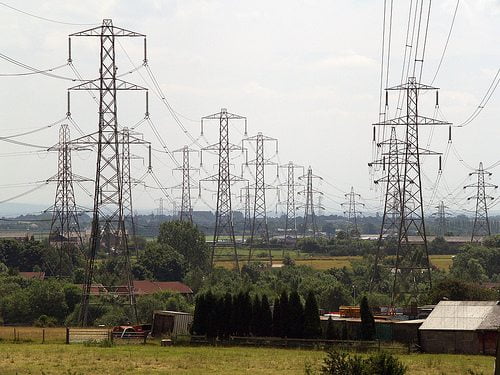

Economy
Shock, horror! Energy companies have ‘let us down’
Energy companies have admitted they have let us down in a hard-hitting new report for a conference on Thursday in London called Energy, Politics and the Consumer. The admission has only been given in the lead up to to the Competition and Markets Authority (CMA) investigation, but we did already know we were being let down.
Across the privatised utilities – energy, water and rail – we have seen a woeful lack of customer service, genuine competition or any innovation. Instead, there has been lots of pretty new logos and marketing campaigns.
National assets have been seized by foreign companies (some state-owned) or secretive private owners. This is what happens if you privatise virtual monopolies, create feeble regulators and have politicians in the pockets of private utilities and the labyrinthine ecosystem of advisers, professional services, financiers and lobbyists that surround them.
Don’t get me wrong; I believe in free markets. But the existence of cartels, oligopolies and monopolies is not a free market. Companies that externalise most of their costs are not operating in a free market. Companies that fix prices, hold governments to ransom, break laws, reward executive failure, covertly lobby politicians, buy off the media and aggressively avoid or evade tax are not operating in a free market.
Just as Gandhi felt that western civilisation would be a ‘good idea’, I feel the same about free markets.
One of the myths of capitalism is that private enterprise, entrepreneurship and the free market are virtually synonymous or at least interchangeable as terms. This is evidently not the case.
Many large enterprises operate in anti-competitive ways and simply profiteer from their market dominance. None more so than utilities. More often than not, big business is the enemy of good business – see banks and supermarkets also. Similarly large private companies are just as inefficient as large public sector organisations; they are just subject to far less scrutiny.
Entrepreneurship is about innovating and taking risks. It’s not really about risking nothing by spending other people’s money, burning through it and then going bust or getting an IPO out of the door.
When told by so many CEOs while working in the venture capital space that they were “an entrepreneur”, the only real response was, “Really? Neither am I.” Entrepreneurs can also use litigation, aggressive patenting and intellectual property protection and general skulduggery to undermine a market.
It’s also a myth that only the private sector can invent. Medical inventions tend to emerge from the brilliance of our universities. Technological inventions tend to come from the same or – in the case of the internet, GPRS and touch screens – from our military complex.
A free market is something entirely different. It is a framework of law and convention that allows for commercial creative destruction, fierce competition, leapfrog invention, dramatic innovations and vast job and wealth creation. A free market taxes wealth and luxuries, not income.
It also recognises its deficiencies in dealing with negative externalities (pollution, environmental degradation, health and safety, worker and consumer rights – Friedrich Hayek) and the moral sentiments (boundaries of behaviour – Adam Smith) of the population as a whole, not just the elite.
The free market does not protect the incumbent rent-seeking market leader or a group of risk averse, overpaid, pole-climbing, corporate bureaucrats operating a cosy conspiracy against the consumer.
So to all those supposedly free market advocates who as captains of our largest energy suppliers are now squealing at the thought of an actual investigation into their practices, the admission is too little too late. Time to switch from them and the craven politicians who have protected them for decades.
Good Energy and Ecotricity are good places to start for energy. In May, give the smaller parties a chance unless a major party commits to genuine, consumer-focused oversight, root and branch reform and rigorous regulation of our privatised utilities.
Further reading:
Big is the enemy of the good in all industries
Energy switching: out of the frying pan into the fire
We need Conservative, Labour, Liberal Democrats and nationalist parties that get sustainability
Creating a financial enlightenment
Climate change aside, we’re harming our children with dirty energy






























